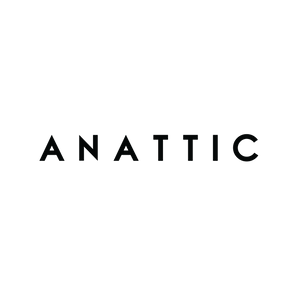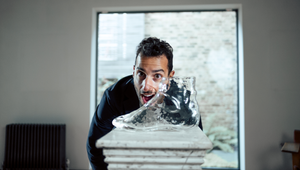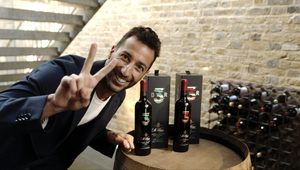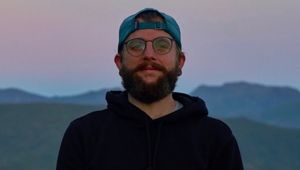
The Directors: Will Clark Smith

Will Clark Smith strives to deliver authentic, emotive storytelling with the brand at the heart: from Tabasco to Omega, Renault to Chelsea FC, Honda to Wayfair, he transports the script off the page and passionately connect the brand with the audience.
Will loves drawing memorable performances from actors and sports personalities alike, as well as conveying the untamed spirit and charisma that only a ten year old can bring to the screen. To build the confidence between himself and the performer, he always aim to create an open, relaxed environment that allows everyone to thrive.
17 years experience in advertising and broadcasting, has taught Will how to be inclusive and collaborative with clients, creatives and crew but ultimately his approach can be summed up by his favourite quote:
“Only Connect”
Name: Will Clark Smith
Location: UK
Repped by: Anattic in Manchester
LBB> What elements of a script sets one apart from the other and what sort of scripts get you excited to shoot them?
Will> Emotion is key. When directing commercials you don’t have a lot of time with your audience so you need them to feel something, connect them with the concept and make them relate to your cast. I love receiving a script that offers those opportunities to bring people together, focus on an emotion and make someone react to the work.
LBB> How do you approach creating a treatment for a spot?
Will> I always look to collaborate with the creative team and the brand to understand the idea behind the creative. I like to discuss the ambitions for the commercial and what they want people to feel when they watch it. Once I have that insight I can begin to develop the shots and style that will bring that to the screen. I try to bring my thoughts in through the angles and movement of the camera, and also in the script and my interpretation of how that translates into performance. But every commercial is different and requires new ways of thinking. I love the variety of what I do and often it can be hundreds of little moments that all become part of the final film. My job as the director is to bring them together as a cohesive whole.
LBB> If the script is for a brand that you're not familiar with/ don’t have a big affinity with or a market you're new to, how important is it for you to do research and understand that strategic and contextual side of the ad? If it’s important to you, how do you do it?
Will> Talk to the brand directly if I can! Every campaign is a discussion and I enjoy working closely with marketing teams and the creative teams to learn about why this commercial matters to them. But also you have to be realistic and if a brand doesn’t feel like the right fit for you then it is best to be honest about that.
LBB> For you, what is the most important working relationship for a director to have with another person in making an ad? And why?
Will> This is a hard one to answer as there are several close working relationships throughout the process. At the start it is with the creative team, learning and developing that vision, then during the shoot it is with the DOP, I love collaborating on set and finding those shots that you never truly see until you are there together in the present. Finally, in post-production it is that time with the editor, sifting through all the footage to coalesce into a finished piece. Creating a film has quite distinct stages and as the director you are often the bridge between those and it goes without saying that the other individual with me along that journey is the producer. So it is a combination of my relationship with all of those people that lead to a film making it to the screen, and I feel very much part of a team to make that happen.
LBB> What type of work are you most passionate about - is there a particular genre or subject matter or style you are most drawn to?
Will> Anything with people fascinates me. I love how, ultimately, we all want to connect with one another and film has this incredible capacity to do that on a very fundamental level.
LBB> What’s the craziest problem you’ve come across in the course of a production – and how did you solve it?
Will> When we were shooting in Scotland the wind was so strong that the drone pilot’s wind speed meter actually broke, but I’ll never forget how he just watched it fly away, then he fired up the drone and got the shot. I now expect every drone pilot to go up in hurricanes!
LBB> How do you strike the balance between being open/collaborative with the agency and brand client while also protecting the idea?
Will> It is like any relationship in that there should be respect on both sides. I completely understand that they will know more about the brand than me but hopefully they will appreciate my input on narrative and film-making. It is about trusting that we all want to make a brilliant campaign together and letting each other do their job to the best of their ability.
LBB> What are your thoughts on opening up the production world to a more diverse pool of talent? Are you open to mentoring and apprenticeships on set?
Will> Definitely. I try to be approachable to everyone on set and be there to advise if someone would like it. In our field the only way you truly learn is through doing it, so mentoring and apprenticeships are a fantastic way to gain that vital experience. There is a huge amount of talent in film in the UK but as with most industries there is still more to be done in terms of diversity in production.
LBB> How do you feel the pandemic is going to influence the way you work into the longer term? Have you picked up new habits that you feel will stick around for a long time?
Will> That is hard to say as the effects of the pandemic are still being felt right now. It has been challenging to say the least, and I have the utmost respect for everyone in production who have managed to keep shoots going, including the people that manage our industry. For me personally, there has been a lot more location and casting research remotely which I think will stay, certainly for the initial pre-production elements. Remote editing is also much more prevalent now but I still prefer to be sat there with the editor, those lucky accidents don’t seem to happen as much when you are not together in the same room.
LBB> Your work is now presented in so many different formats - to what extent do you keep each in mind while you're working (and, equally, to what degree is it possible to do so)?
Will> Whenever I approach a shoot I will try to ascertain what is the primary format the campaign is intended for, as there should be difference in scripts and creative depending on where it will be shown. That will then be the format that we view on set and in edit. If I know that it is to be reformatted for different media then I will ensure that the DOP and myself keep that framing in mind for every shot. But there will be compromises and I think it is important to make the client aware that not every element will translate across all media.
LBB> What’s your relationship with new technology and, if at all, how do you incorporate future-facing tech into your work?
Will> I like to see as much as I can in-camera. Technology should be an asset but not the focus when it comes to filming. Technology is constantly changing but I still believe the key to any film is the emotion on screen, what you capture has to make you feel something whatever piece of kit you are using.
LBB> Which pieces of work do you feel really show off what you do best – and why?
Will> I am really proud of the work I have just completed for Honda. It had that perfect combination of people, place and meaning. I loved to be able to tell a story that looks beautiful and hopefully makes the viewer feel something.










